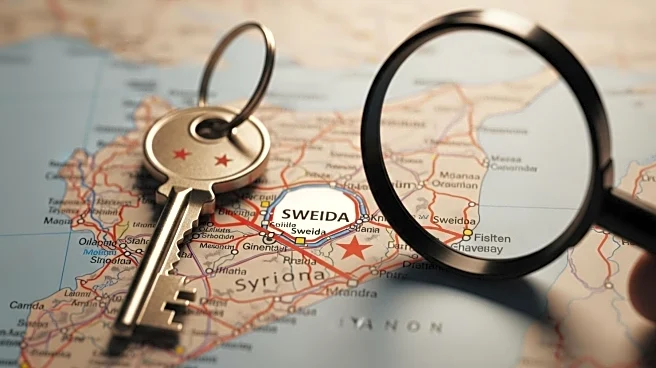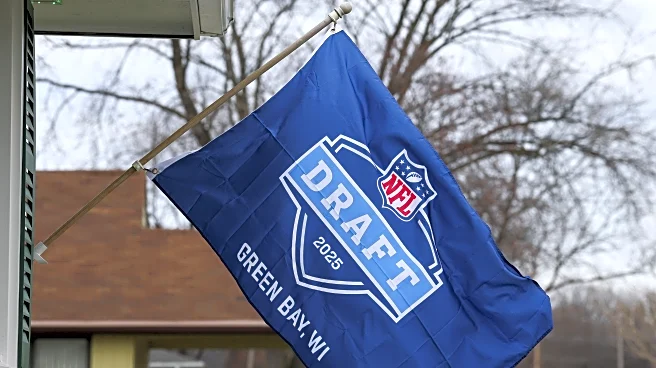What's Happening?
Residents of Sweida, a province in southern Syria, have initiated a campaign to gather signatures for a petition advocating for a referendum on their right to self-determination. This move comes shortly after a local legal body dismissed a US- and Jordanian-backed roadmap intended to resolve ongoing unrest. The petition seeks international support for a vote on whether Sweida should pursue full independence, self-rule, or a decentralized administration. The campaign has mobilized over 2,000 volunteers across 19 centers in Sweida city, with security managed by a local force appointed by Druze spiritual leader Hikmat al-Hijri. Despite the campaign's momentum, many residents express hesitation due to fears of renewed ties with Damascus or closer association with Israel. The Higher Legal Committee in Sweida has formally rejected the Syrian foreign ministry's statement on the roadmap, accusing Damascus of complicity in recent atrocities and advocating for an international mechanism to ensure justice.
Why It's Important?
The petition campaign in Sweida highlights the complex dynamics of regional autonomy and national reconciliation in Syria. The initiative underscores the Druze community's desire for self-determination amidst fears of external influence and internal conflict. The rejection of the roadmap by local authorities reflects deep-seated mistrust towards Damascus and concerns over imposed solutions that may not address local grievances. This development could influence broader geopolitical strategies in the region, as international actors like the US and Jordan seek to mediate peace and stability. The campaign's success or failure may set a precedent for other regions in Syria, potentially reshaping the country's political landscape and affecting regional alliances.
What's Next?
The ongoing petition drive in Sweida is likely to attract further attention from international stakeholders, including the United Nations and neighboring countries. As the campaign progresses, it may prompt diplomatic discussions on the feasibility of a referendum and the implications of potential independence or self-rule. The Syrian government’s response, or lack thereof, will be crucial in determining the next steps, as will the reactions from major powers involved in Syrian affairs. The situation could lead to increased international pressure on Damascus to address local demands and reconsider its approach to regional governance.
Beyond the Headlines
The Sweida petition campaign raises important questions about the balance between national sovereignty and regional autonomy. It highlights the ethical and legal challenges of self-determination movements within a nation-state framework. The campaign also reflects broader cultural and historical tensions between the Druze community and the Syrian government, which have been exacerbated by recent conflicts. Long-term, this movement could influence how minority groups in Syria and the Middle East navigate their identities and political aspirations in the face of external pressures.











